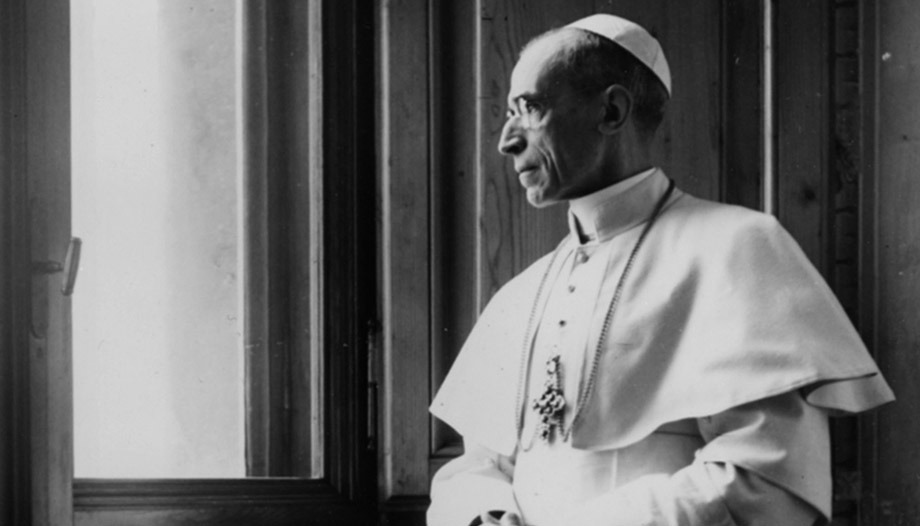Pius XII is a controversial figure. On the one hand, protagonist of recognized actions to protect the victims of Nazi-fascism, especially in the dramatic months of the occupation of Rome; on the other hand, accused of too many "silences" in the face of the dramatic news that reached the Vatican, already in 1939, from the territories occupied by Hitler, starting with Poland.
In 2020, the Vatican Apostolic Archives made available to scholars the documents of the pontificate of Pius XII. Thanks to this extraordinary research opportunity, it is now possible to carry out a more complete analysis and a more accurate interpretation of a crucial passage in the history of the twentieth century.
By the will of Pope Francis, since June 23, this precious patrimony of documents, which includes 170 volumes, is largely available on the Internet in a digital version, freely accessible to all.
In addition to the photocopy of each individual document, the archive has made available a file with the analytical inventory of the series, in which the names of the grant recipients listed in the documents have been transcribed. So far, 70% of the total material can be consulted, which will be completed later with the last volumes.
During a meeting promoted by the ISCOM Association on the Persecution of the Jews during the pontificate of Pius XII (a meeting attended by more than 30 Vaticanists), Johan Ickx, head of the Historical Archives of the Section for Relations with States of the Secretariat of State, explained the reasons for Pope Francis' decision to digitize the Jewish archival series, making it available to all.
The Pope's decision, in addition to giving new impetus to historiographical research, will make it easier for the families of the persecuted to reconstruct the stories of their relatives who sought help from the Holy See during World War II.
"The Jewish series is a bit special," Ickx points out, "because normally the series in our historical archives of the Secretariat of State are distinguished by the name of a state, with which the Holy See had normal bilateral relations in a given historical period.
Under the pontificate of Pope Pacelli, around 1938, the following was suddenly created a series of files with this name - "Jews"- as if, for the Holy See, it were a specific nation. The series remained open until '46 and then, with the end of World War II, it was closed."
It is not the first time that Pope Francis has promoted this type of initiative. In the past he had wanted to open in advance the Vatican archives on the years of the dictatorship in Argentina, to help the families of the victims to discover the truths that the archives themselves might have hidden.
The Vatican had already taken a step in this direction in the 1970s, during the pontificate of Paul VI, with the publication of the Acts and documents of the Shrine relating to the period of World War II.
Now it is possible for any Internet user to view, in pdf format, all the requests for help addressed to the Holy See by the persecuted and then the resulting files on the individuals, families or groups who asked Pope Pius XII for help.
In Ickx's opinion, "it will be interesting to see how universities, associations dealing with this type of research, but also Shoah Museums in all European cities, will work on these documents. These documentation centers can now draw on this material more easily and in real time."
In his book "Pius XII and the Jews" of 2021, Ickx demonstrates the willingness of the Holy See to help those persecuted by Nazi-fascism. But also its inability often, because many times the Holy See was hindered: "The Nazis were present in half of Europe at that time and prevented any aid initiative. But also the fascist regime in Italy carried out persecution and therefore often hindered the Vatican's rescue actions. Many times even the national governments did not cooperate."
The idea that turning to the Pope was a possible way of salvation is further accredited by the content and tenor of the letters themselves: 2,800 requests for help or intervention for some 4,000 Jews between 1938 and 1944. Among them, the book refers to Mario Finzi, then head of the delegation of assistance to Jewish emigrants in Bologna, who wrote to Pope Pius XII, referring to a specific request for help from a family: "You are the last one who can do something for this family". Today we know that part of that family, whose members, as was often the case, were scattered throughout the territory, was saved.
One of the most interesting documents in the book is a letter from Cardinal Gasparri, dated February 9, 1916, in which he responds to a request from the American Jewish Committee of New York. A letter, Ickx argues, inspired precisely by Eugenio Pacelli, then Foreign Minister of the Secretariat of State: "In that case, the American Jews asked the Vatican for a position from Pope Benedict XV on the racial persecution that had already begun during the First World War.
Secretary of State Gasparri responded with this text, explicitly authorizing its publication. The newspapers of the American Jewish communities echoed it, describing it with satisfaction as an authentic "encyclical". In the text, Jews are literally defined as "brothers" and it is affirmed that their rights must be protected like those of all peoples.
It is the first document in the history of the Catholic Church and the Holy See to express this principle. "These are the words that - concludes Ickx - we find in the document Nostra Aetate of the Second Vatican Council, published in 1965. These are precisely the principles that Pius XII applied for decades during his pontificate in the face of the great challenge of Nazism and then Communism."








